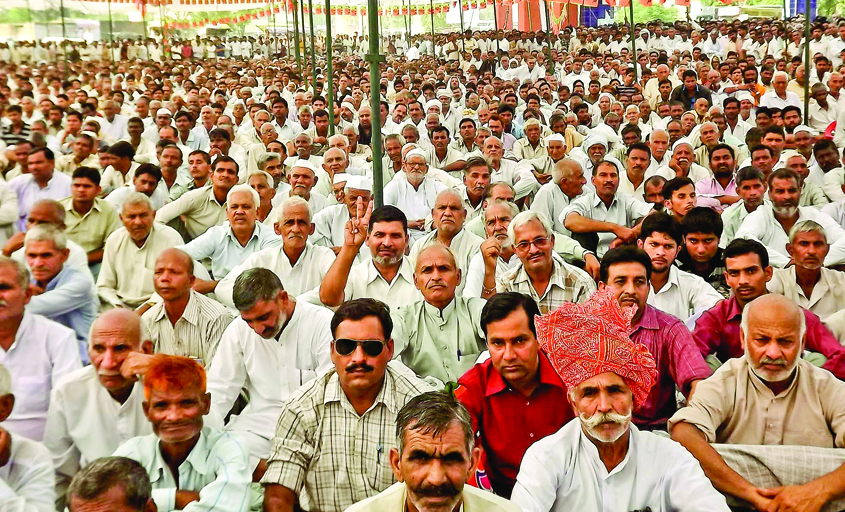For long, the demographic character of Deoband has been assumed to be dominated by the Muslim community because of the presence of the Darul Uloom madrasa in this small town. The madrasa is counted among the world’s leading schools of Islamic education.
However, contrary to popular notion that Deoband is a Muslim-dominated constituency, Hindus make up the majority population in this district of Saharanpur.
According to the 2011 Census, the Deoband Nagar Palika has a population of over 97,000 people, out of which 71% are Muslims and 28% are Hindus, but under Deoband’s administrative division, there are 178 villages which are Hindu dominated. When the populations of these villages and Deoband are combined, the single largest community emerges to be that of Hindus. This is seen as the reason behind why, over the years, the Thakur caste has ruled Deoband’s MLA/MP seats, while the local body chairman has almost always been a Muslim.
According to Election Commission data, approximately 234,000 votes were caste in Deoband in the 2017 Assembly elections.
While BJP’s candidate Brijesh Singh Thakur stood first with 102,244 votes, Majid Ali of BSP came second with 72,844 votes and SP’s sitting MLA Maviya Ali came third with 55,385 votes. According to local news reports, the total number of registered voters in Deoband is over 3 lakh, out of which over a lakh voters are Muslims. Among the rest, around 65,000 are Dalits and around 154,000 are other castes, including dominant castes such as Thakurs and Gurjars.
Ashraf Rehman (name changed), a teacher at Darul Uloom, said, “The analysis of votes as we have been hearing is that around 65,000 Muslims voted in this election and most of them supported the Samajwadi Party. A smaller proportion of Muslim votes went to the BSP. Elsewhere in Uttar Pradesh, Muslims might have voted for the BJP, but in Deoband, we know that Muslims here did not vote for the BJP at all. They had no reason to. The BJP won here because of the excessive split of Muslim votes.”
Ravinder, a resident of Bandar Zudda village near Deoband, said, “The reason why the BJP candidate won in Deoband is because there was absolute consolidation of Hindu votes in the nearby villages that had witnessed riots recently. We were frustrated because of the SP’s gundagardi. They only cared about appeasing the minorities, forgetting all the havoc they had created in the lives of other people. It was pretty clear to us that the BJP’s candidate would win here since the SP and BSP both nominated Muslim candidates from their seats.”
Explaining the dynamics behind the two Muslim candidates, Mohammad Khalid, a paan-shop owner in Deoband, said, “The only reason why Maviya Ali became the sitting MLA from Deoband was because of the recent byelections. BSP had not nominated any candidate from the seat here and the BJP had nominated a Hindu candidate, but there was hardly any campaigning done for him. So, SP’s Maviya Ali had an easy win. But this time in the Assembly elections, there were two Muslim candidates which resulted in a division of the Muslim votes. If the only Muslim candidate had belonged to the BSP, they could have clearly secured the seat because of Dalit and Muslim voters in the area.”
A look at past records shows that since the 1990s, an upper caste Hindu candidate has always been elected as the MLA by the people in Deoband. More recently, in 2012, Rajendra Singh Rana of SP was elected from here. In 2004, Manoj Choudhari of BSP, in 2002 Rajendra Singh Rana of BSP and in 1996 Sukhbir Singh Pundir of BJP won from this seat.
Sonu, a small cattle trader in Deoband, said, “Not all Dalits voted for BSP. We had no reason to support the BSP since we feel thoroughly betrayed by Behenji. I voted for the BJP because I wanted to get rid of the SP and BSP’s false promises. But among Muslims, it clearly felt like an Akhilesh-wave here, but because of the confusion created by two Muslim candidates, both of them lost.”

